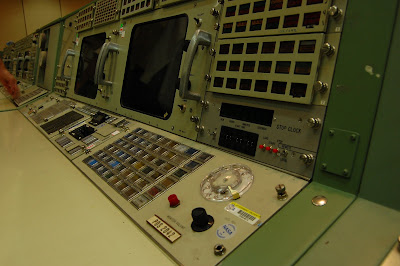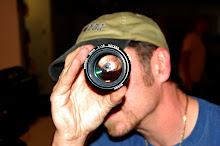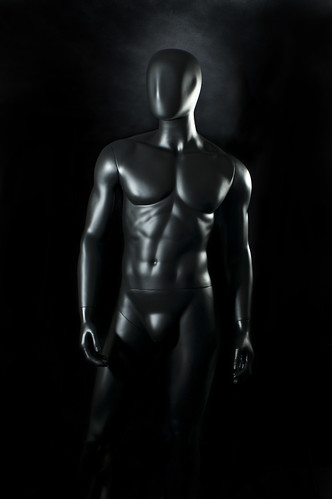
One of the most famous radio communications ever transmitted is also often miss-quoted as "Houston, we have a problem". Small difference, I know. But it does show that the crew of Apollo 13 knew immediately that their mission had changed. On a recent late night visit to the mission control room that received that famous five words, I could imagine the mood instantly changing to one of determined and shared focus: to get those 3 men back safely.
Just walking into this control room gives you a chill. You get a serious sense that you are in a special place. I was whooshed right back to 1970. It smells like 1970. It looks much smaller than you would think, given the incredible amount of amazing firsts this room witnessed. It was this day, April 17th back in 1970 when this room finally erupted in applause and handshakes and sighs of relief when after 4 long and tense days, the crippled Apollo 13 Lunar Module made it back to Earth. This successful failure, as it was called, was not only possible due an incredible amount of luck, but an amazing crew on the ground that made it possible.
Out of all of the amazing things you can see at Johnson Space Center and Space Center Houston, the most human and touching thing was mounted on the wall of the mission control room. It was a small mirror, mounted in a frame with the following inscribed:
This mirror flown on Aquarius, LM-7, to the moon April 11-17, 1970. Returned by a greatful Apollo 13 crew to "reflect the images" of the people in Mission Control who got us back!
James Lovell John Swigert Fred Haise
There has been lots of talk lately with the possible cancellation of the Constellation Program and the fate of the Human Space Flight program for NASA. It is hard to imagine the U.S. not being the leader in space, and in technology. There is so much science that comes from the manned space flight program that the loss of not continuing our program could be, for lack of a better term, astronomical. People quickly forget where much of the technology we take for granted comes from. Air travel and communications as we know it, medical breakthroughs and new materials that will save lives and energy are all possible directly from the space program. If we could only limit our wars and put those billions of dollars saved into educating our next generation of scientist and engineers, we would all be so much better off.















